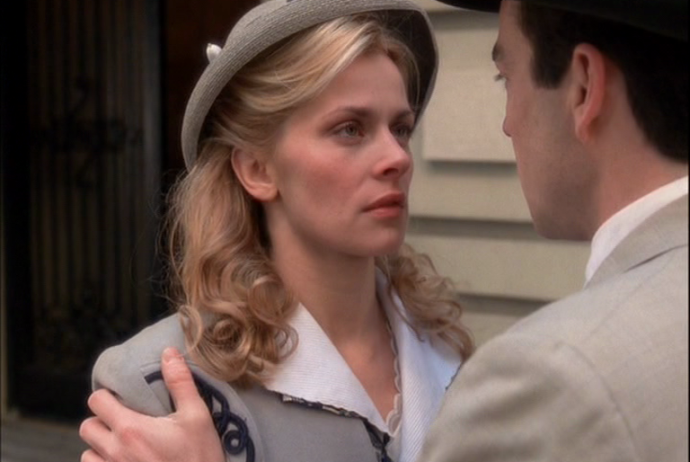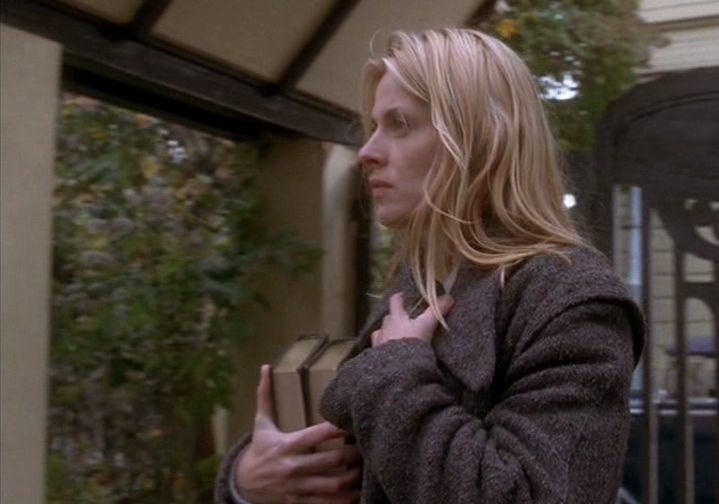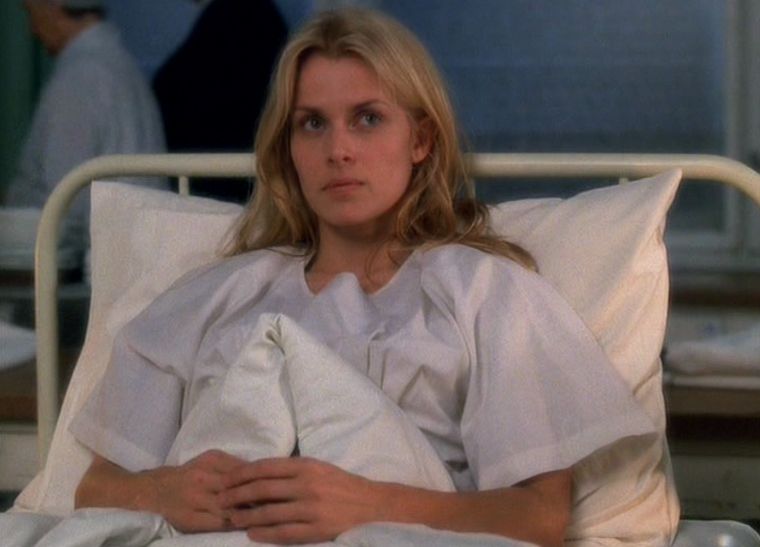Dir: Armand Mastroianni
Star: Nastassja Kinski, Rupert Penry-Jones, Tim DeKay, John Tenney
Which living author has sold the most books? Stephen King? J.K. Rowling? Not even close. The champion is Danielle Steele, with estimates ranging from 500 to 800 million copies sold – for comparison, the number for Rowling, the next-highest, is 350-450 million. Of course, it helps considerably that Steele has written an awful lot more books: 120 since her debut over four decades ago, so her average sale is a good deal less. But she certainly has her market, even if some decry her work as formulaic rubbish, rather than great literature. More than 20 of Steele’s novels have been turned into movies or TV miniseries, including this, a two-part example of the latter screened on NBC.
It covers the von Gotthard family over a period of almost forty years, beginning with the matriarch’s tryst being rudely interrupted by the Nazis in pre-war Germany, due to her lover being a Jew. He’s shot dead in front of her, and she ends up committing suicide in the bathtub, being discovered by her young daughter, Ariana. A decade later, the war is in full, and Ariana (Kinski), her younger brother Gerhard (Penry-Jones) and their father Walmar (Michael York) are making plans to exit the country before Gerhard is sent to the Russian front. The attention of the authorities is attracted when they help a family friend Max Thomas (DeKay) escape by train, and it’s decided that the father and son will go to Switzerland first, leaving Ariana behind to allay suspicions. However, Walmar is shot trying to cross the border, splitting the family up. It takes a quarter-century of time, and a great deal of drama, before Ariana and Gerhard are re-united.
The thing which strikes me most is how little effort the production puts into showing the passage of time on the heroine. When we first meet Nastassja as Ariana, she must be twenty, based on her being ten (per the IMDb credits) when she discovers her dead mother in the bathtub. In her mid-thirties at the time of filming, Nastassja is probably a little mature, but still fresh-faced enough to pull it off without any real issues. However, the film finishes 27 years later, which would put Ariana near fifty years of age – yet she still looks almost exactly as she did at the start of the movie. The complete lack of effort put into the passage of time is oddly disconcerting, and I was left wondering if, along with the family’s treasured Renoir, there was a painting of Ariana in an attic somewhere, which was aging mysteriously.
The rest of the film is the kind of melodrama with which you can safely curl up with on the sofa for a rainy winter Sunday afternoon’s entertainment, accompanied by a box of chocolates and a purring cat. The script does a good job of weaving the separate stories of the siblings, along with Max’s to a lesser extent, as they independently make their way out of the chaos that was post-war Germany, and try to make new lives for themselves, with varying success. It’s interesting to compare and contrast the similar kind of issues they face, e.g. pregnancies, be they unwanted or phantom; parental disapproval or demands. The titular ring doesn’t play much of a part in proceedings: it’s simply a family heirloom, passed down from Ariana’s mother to her, and then on to her daughter in law, though it does trigger the eventual reunion with Gerhard [Look, it’s a Danielle Steele book: saying there’s a happy ending is hardly a spoiler]
The acting is generally solid and after a couple of supporting roles, it’s good to see Kinski back at the centre of the film, around which the storyline turns. She delivers a winning performance, very quiet and soft-spoken, but also capable of incandescence, such as the smile when she discovers Gerhard may still be alive. She also possesses her share of steely resolve, most apparent when she’s arrested by the authorities, who want to find out where her father and brother have gone, and she withstands not just incarceration but also more direct brutality, before fortunately being rescued by sympathetic Nazi Manfred Von Tripp (Carsten Norgaard) – their relationship ends with his death during the defense of Berlin, which is rather unfortunate, since Ariana is pregnant. This is pretty much par for the course here, since her troubles are largely because Ariana is a victim of unfortunate circumstance, rather than poor life choices.
For example, the only way she gets to America is on a Jewish refugee ship, but the pretense of being Jewish required, ends up causing more problems than it solves, further down the road, as she has a relation ship with Jewish refugee worker Paul Liebman (Tenney), whose family brings her into their home, unaware she’s faking her religion. There’s probably a lesson for us all there. Just don’t ask me what it is… I haven’t read the book, so can’t say in detail how it compares to the film. But it does appear to pay more attention to the mother, which would probably be helpful, as the first time we see her – indeed, it’s the first scene of the entire film – she’s in bed with her lover, which makes her come across as a bit… Well, the word “whorish” does come to mind, and it certainly doesn’t do much to create sympathy for the character. The final reel also requires more than its fair share of disbelief suspension, as Ariana’s son ends up going out with her second husband’s daughter. What are the odds?
I enjoyed this rather more than the first occasion I watched it, back in 1998, when I watched it as the second part of an all-night Nastajssafest, and it seemed more like a test of endurance. This time round, it seemed a lot less of a chore, though I’d hardly call it more than reasonably well-made fluff. As such, it seems perfectly appropriate as an adaptation of Steele’s literary output. Random trivia: also seen here is Leigh Lawson, who played Alec d’Urbeville opposite Nastassja in Tess, almost two decades previously.
[Screenshots from Cosas de Mar]


